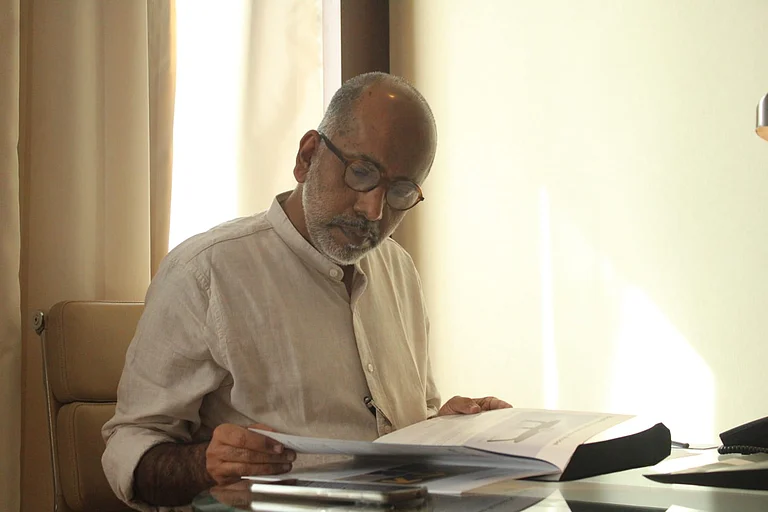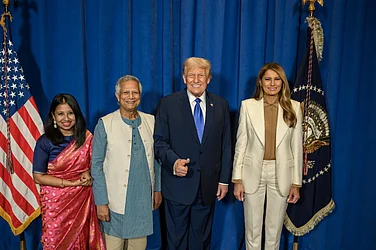American smartphone and technology giant Apple on Tuesday conducted its main annual event where it announced the launch of the next iPhones, and it led to the usual 'sell kidneys' memes, with the gadget's prices starting at Rs 79,900 for the most basic model and going up to Rs 1,84,900 in India for their most advanced and flagship model - the iPhone 16 pro max.
The debate about whether the iPhone is worth it or not has been going on since time immemorial and won't end till the company continues to make these but the smartphone giant's peculiarity of putting features in its gadgets "differently" might be its "trick" to place itself at a monopolistic position in the market by playing on the prestige card. At least that's what a lawsuit accuses Apple of doing.
The iPhone's 'Prestige', A Marketing Trick?
Messages from non-Apple phones appearing in green bubbles instead of the typical gray and blue, an Apple exclusive iMessage feature coming with a host of elements like message special effects and facemojis, its non-C port cable for charging (changed by the company to bend to EU rules) are a few things the company offers in its gadgets, particularly iPhones, but these as per an antitrust lawsuit are attempts by the firm to thrive on "psychology" and to make people without the gadget feel a "social stigma".
According to a Business Insider report, the supposed cyberdiscrimination flagged by the federal government in the US in its antitrust lawsuit against Apple alleges that the company has unfairly cornered the smartphone market, highlighting the the green-bubble issue.
In the filing, the Justice Department has alleged people without Apple devices often feel a "social stigma, exclusion, and blame for 'breaking' chats where other participants own iPhones," adding that this is done by the company "on purpose".

The department alleges Apple takes all sorts of measures to maintain a monopoly on smartphones and keep developers and consumers within its grip, including making the messaging experience when communicating with non-iPhone users "different and weird."
The lawsuit alleges that Apple's control over its App Store and other policies unfairly limit opportunities for rival developers and companies to compete, further solidifying its market dominance. This antitrust case is one of several that explore whether Apple’s business practices are creating an unfair marketplace and contributing to the company’s outsized influence in the tech world.
It is not uncommon to find people who would find the usual way of texting or Android way of doing things "tacky" and find exclusivity in the Apple way of doing this, even if it is inconvenient.
The lawsuit alleges Apple intentionally makes devices that run on competing operating systems such as Android look bad, adding that how messages are sent is one example of it.
The Peer Influence In iPhone Purchases
According to findings published by the European Union Digital Library (EUDL), Apple's dominance in the smartphone market isn't just about sleek designs and innovative technology; psychological factors, particularly peer pressure and brand loyalty, play a significant role in driving iPhone sales even as other smartphone brands offer similar functionality at competitive prices.
The social aspect of owning an iPhone cannot be overstated. Many consumers feel a strong desire to own an iPhone simply because their friends, family, or colleagues use one. Peer influence plays a key role in shaping purchasing decisions, as people often feel compelled to conform to group norms. This psychological pressure creates a sense of urgency for many to buy an iPhone, even when competing smartphones from brands like Samsung or Huawei offer similar technical features at lower prices.
The Apple Ecosystem, A Trap?
According to a study published in EUDL, when comparing models from Apple, Samsung, and Huawei based on technical functionalities and prices, it was found that while all three brands offer similar features, Apple stands out in several areas that contribute to its appeal. These factors include:
Price: While the iPhone is slightly more expensive than comparable models from other brands, this difference is not a major deterrent for consumers Interior Functions and Friendly Interface: The iPhone's consistent and user-friendly operating system enhances user satisfaction, making it a competitive option.
Peer Influence: Strong performance in these areas further solidifies Apple's position Despite these technical advantages, the study highlighted that peer influence and brand loyalty are stronger factors in driving iPhone purchases than even its appearance—a factor that generally influences smartphone purchases for other brands.
Citing a a study, the EUDL findings said that because Apple devices are expensive, people would use them "to show off their financial ability" and gradually "people would see people with iPhone as cool people".
The Apple Ecosystem & Psychology of Brand Loyalty: Similar to factors highlighted in this report above, the EUDL findings also say that important psychological factor contributing to Apple's dominance is brand loyalty, which the company has built by creating an ecosystem of its own.

Once a customer starts using an iPhone, they tend to stick with the brand, drawn in by Apple's ecosystem, which integrates devices like the iPhone, MacBook, iPad, and Apple Watch. This sense of continuity encourages repeat purchases, creating a cycle where users are less likely to switch to a competitor, even if alternatives offer similar or better features at lower prices
Apple's continued success can be attributed not only to its technological prowess but also to the psychological factors it has masterfully leveraged.
Seems like peer pressure, brand loyalty, and user satisfaction won't stop working together to create a strong demand for iPhones or other Apple gadgets, even when similar products are available at lower prices.



























